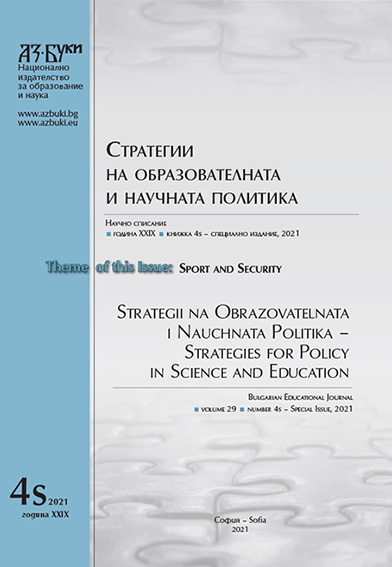Recognition of Fake News in Sports
Recognition of Fake News in Sports
Author(s): Petko DimovSubject(s): Social Sciences, Education, Media studies, Communication studies, Sociology, Higher Education , History of Education, Sports Studies, Globalization, Sociology of Education
Published by: Национално издателство за образование и наука „Аз-буки“
Keywords: fake news; tool; disinformation
Summary/Abstract: This report examines the phenomenon of “fake news” and the influence which disinformation has in the contemporary sports information space. The problem, regarding their wide spread in the contemporary information space and their gradual transition from political life to the world of sports, leads to the necessity of defining and classifying fake news in the sports information space in order to offer a mechanism for their recognition and a practical tool supporting this activity. In the age of fake news, sports stars need security and real connections with the media to improve their performance. With the help of the literary analysis of the specialized sources, examples of disinformation in sports stories have been found, and consequently definitions of fake news, propaganda and disinformation have been proposed. After a review of specialized sources, a classification of ten types of fake news in sports has been made, giving real examples from the lives of Bulgarian athletes. Hence, a simplified seven-step algorithm has been developed to support users' critical thinking and decision-making when evaluating news in the media space. As a result of the proposed classification of “fake news” in sports and the created algorithm, a practical online tool has been created which would help the analysis of given information and the recognition of signs of fake news in online sports media. The tool has been created with the help of the HTML programming language HTML in the form of a webpage which is accessible from anywhere in the world. It is a set of applications that identify all types of fake content in the contemporary information space. This tool can be used to improve the security of athletes and even their game performance.
Journal: Стратегии на образователната и научната политика
- Issue Year: 29/2021
- Issue No: 4s
- Page Range: 18-27
- Page Count: 10
- Language: English

